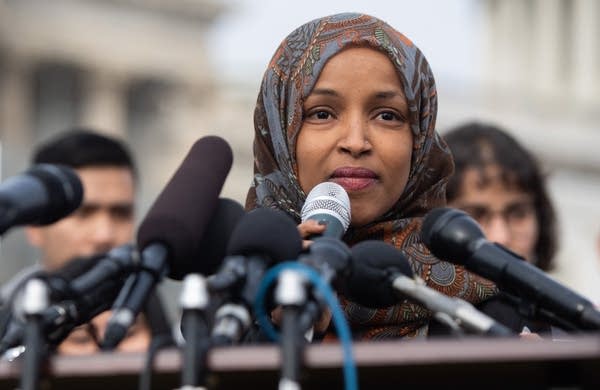Fact check: Trump goes after Omar at rally
The president misrepresented words from Rep. Ilhan Omar to make her sound like an al-Qaida sympathizer.

At his North Carolina rally Wednesday, President Trump misrepresented words from Rep. Ilhan Omar to make her sound like an al-Qaida sympathizer.
Saul Loeb | AFP | Getty Images file
Go Deeper.
Create an account or log in to save stories.
Like this?
Thanks for liking this story! We have added it to a list of your favorite stories.


